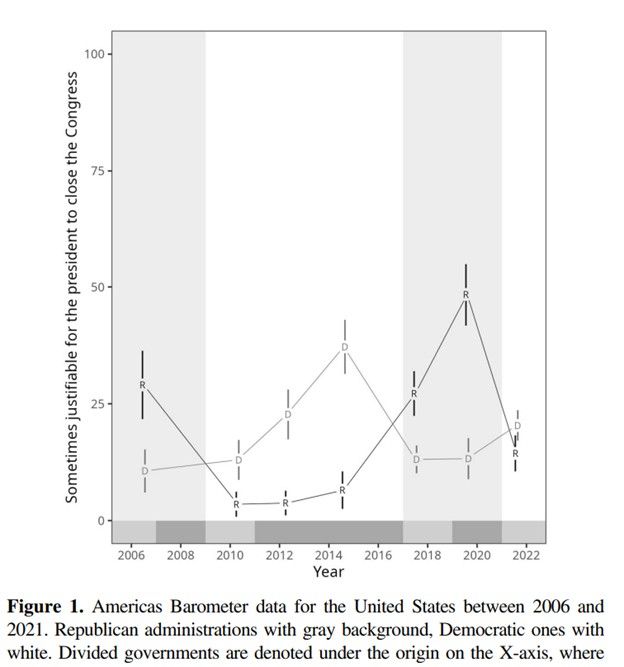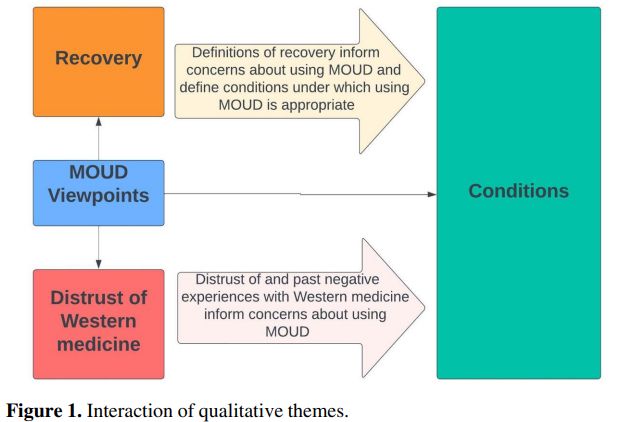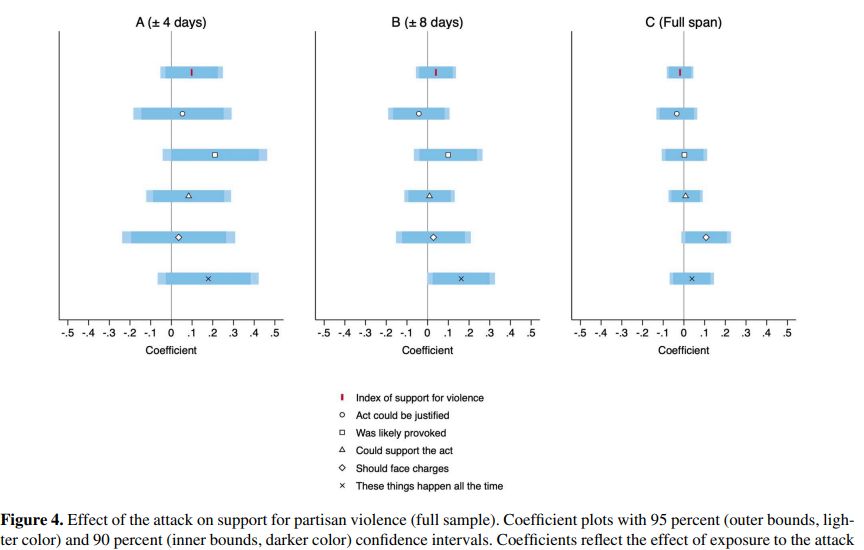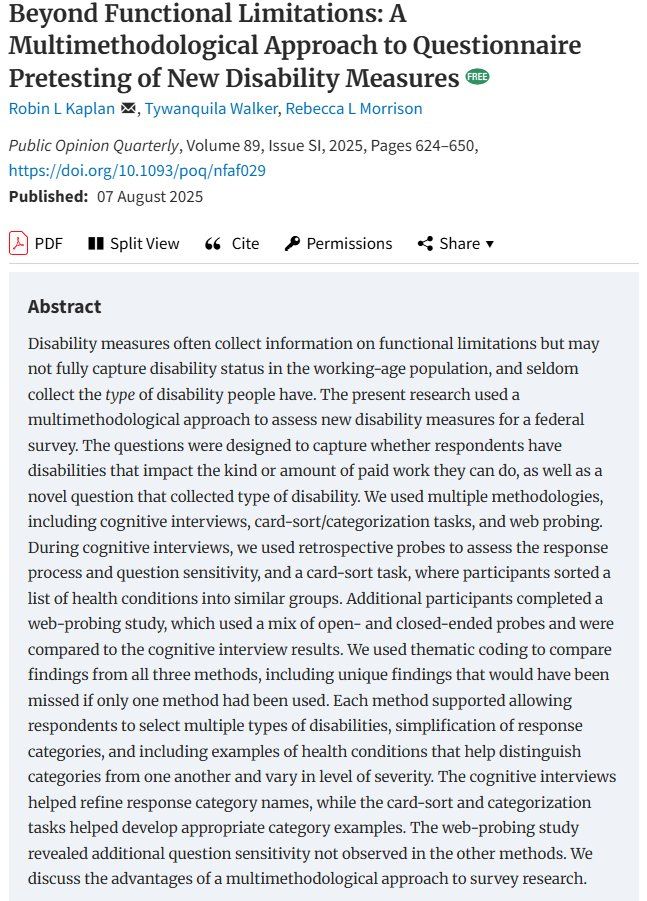
pejones.org
bsky.app/profile/phil...
➕ the feed to see posts in your timeline
tag me to join the list of posters, and then use hashtags #LGBTQResearch, #LGBTQPolitics, or #QueerPolitics to post to the feed
In POQ, Grossman reviews Burstein’s book on American Public Opinion, Advocacy, and Policy in Congress. Burstein’s findings show that the public and media are seldom influential in Congress.
Read more: doi.org/10.1093/poq/...

In POQ, Grossman reviews Burstein’s book on American Public Opinion, Advocacy, and Policy in Congress. Burstein’s findings show that the public and media are seldom influential in Congress.
Read more: doi.org/10.1093/poq/...
In POQ, Chan argues that an authoritarian's electoral success abroad can shatter democratic norms and demonstrate the viability of authoritarianism.
Read more: doi.org/10.1093/poq/...


In POQ, Chan argues that an authoritarian's electoral success abroad can shatter democratic norms and demonstrate the viability of authoritarianism.
Read more: doi.org/10.1093/poq/...
New in POQ, Pangakis dispels the common view that Americans are more supportive of people immigrating to flee violence than economic migrants.
Read now: doi.org/10.1093/poq/...


New in POQ, Pangakis dispels the common view that Americans are more supportive of people immigrating to flee violence than economic migrants.
Read now: doi.org/10.1093/poq/...
New in POQ, Peterson reviews Taylor Carlson's book, which puts potential opinion leaders and their ability to convey information in the spotlight.
Read now: doi.org/10.1093/poq/...

New in POQ, Peterson reviews Taylor Carlson's book, which puts potential opinion leaders and their ability to convey information in the spotlight.
Read now: doi.org/10.1093/poq/...
Papers are being reviewed and accepted on a rolling basis starting now – full details here: s3-us-west-2.amazonaws.com/clarivate-sc...
Papers are being reviewed and accepted on a rolling basis starting now – full details here: s3-us-west-2.amazonaws.com/clarivate-sc...
Though it was not a mayoral election, the 1948 presidential election, between Truman, Dewey, and Wallace, saw a dramatic last-minute swing.
Read more: doi.org/10.1086/266073

Though it was not a mayoral election, the 1948 presidential election, between Truman, Dewey, and Wallace, saw a dramatic last-minute swing.
Read more: doi.org/10.1086/266073
In POQ, Hickel et al. find that negative stereotypes of immigrants are a motivating force electorally among the Latinx community.
Read more: doi.org/10.1093/poq/...


In POQ, Hickel et al. find that negative stereotypes of immigrants are a motivating force electorally among the Latinx community.
Read more: doi.org/10.1093/poq/...
Schaffner & Luks used controversy over crowd sizes in the 2009 and 2017 presidential inaugurations. Trump supporters gave expressive responses to show their support.
Read now: doi.org/10.1093/poq/...



Schaffner & Luks used controversy over crowd sizes in the 2009 and 2017 presidential inaugurations. Trump supporters gave expressive responses to show their support.
Read now: doi.org/10.1093/poq/...
In POQ, Henderson and Oden explore COVID-19’s impact on the duration of anxiety and how its persistence translates into political attitudes.
Read more: doi.org/10.1093/poq/...


In POQ, Henderson and Oden explore COVID-19’s impact on the duration of anxiety and how its persistence translates into political attitudes.
Read more: doi.org/10.1093/poq/...
In POQ, Sanchez & Foxworth examined Native American political behavior in the 2020 presidential election. They found that proximity was a strong mobilizing factor.
Read more: doi.org/10.1093/poq/...



In POQ, Sanchez & Foxworth examined Native American political behavior in the 2020 presidential election. They found that proximity was a strong mobilizing factor.
Read more: doi.org/10.1093/poq/...
Schuman et al. conducted a national survey in 2005 to assess beliefs about Columbus and the influence of revisionist history. They find revisionist ideas have little impact.
Read more: doi-org.proxy.cc.uic.edu/10.1093/poq/...



Schuman et al. conducted a national survey in 2005 to assess beliefs about Columbus and the influence of revisionist history. They find revisionist ideas have little impact.
Read more: doi-org.proxy.cc.uic.edu/10.1093/poq/...
In POQ, Green et al. discern differences in candidate preference and perceived electability among 2020 Democratic primary voters.
Read more: doi.org/10.1093/poq/...


In POQ, Green et al. discern differences in candidate preference and perceived electability among 2020 Democratic primary voters.
Read more: doi.org/10.1093/poq/...
Littvay et al. show that while Republicans are more lenient of their president eroding norms, Democrats’ tolerance increases when they hold the presidency.
Read more: doi.org/10.1093/poq/...


Littvay et al. show that while Republicans are more lenient of their president eroding norms, Democrats’ tolerance increases when they hold the presidency.
Read more: doi.org/10.1093/poq/...
Medway et al. investigate this and find that time use, attitudes toward the government, and privacy concerns are primary reasons. Although these manifest in different ways among individuals.
Read now: doi.org/10.1093/poq/...

Medway et al. investigate this and find that time use, attitudes toward the government, and privacy concerns are primary reasons. Although these manifest in different ways among individuals.
Read now: doi.org/10.1093/poq/...
Ollerenshaw and Jardina observe how opinions have evolved since 1988 among partisan and racial/ethnic groups. The most significant shifts have been from white Democrats.
Read more: doi.org/10.1093/poq/...


Ollerenshaw and Jardina observe how opinions have evolved since 1988 among partisan and racial/ethnic groups. The most significant shifts have been from white Democrats.
Read more: doi.org/10.1093/poq/...
As live-video surveys become commonplace, Okon et al. shed light on what this means for data collection.
Read now: doi.org/10.1093/poq/...


As live-video surveys become commonplace, Okon et al. shed light on what this means for data collection.
Read now: doi.org/10.1093/poq/...
In POQ, Grubin et al. explore the stigmas and barriers to administering medications to treat opioid use disorder (MOUD), which is proven to assist in recovery.
Read now: doi.org/10.1093/poq/...


In POQ, Grubin et al. explore the stigmas and barriers to administering medications to treat opioid use disorder (MOUD), which is proven to assist in recovery.
Read now: doi.org/10.1093/poq/...
In POQ, Nai et al. show that those experiencing partisan Schadenfreude toward the victim's party offer higher short-term support for political violence.
Read now: doi.org/10.1093/poq/...



In POQ, Nai et al. show that those experiencing partisan Schadenfreude toward the victim's party offer higher short-term support for political violence.
Read now: doi.org/10.1093/poq/...
In POQ, Kaplan et al. used a multimethodological approach to measure the type of disability and the extent to which it limits their ability to work.
Read now: doi.org/10.1093/poq/...


In POQ, Kaplan et al. used a multimethodological approach to measure the type of disability and the extent to which it limits their ability to work.
Read now: doi.org/10.1093/poq/...
In POQ, Jones-Layman et al. constructed eight age-friendly city (AFC) domains as a framework for understanding best practices for aging in place.
Read now: doi.org/10.1093/poq/...

In POQ, Jones-Layman et al. constructed eight age-friendly city (AFC) domains as a framework for understanding best practices for aging in place.
Read now: doi.org/10.1093/poq/...
In POQ, Haan & Venema provide guidance on different TA approaches and the flexibility that a blended approach to TA presents to scholars.
Read more: doi.org/10.1093/poq/...

In POQ, Haan & Venema provide guidance on different TA approaches and the flexibility that a blended approach to TA presents to scholars.
Read more: doi.org/10.1093/poq/...
In POQ, Ferreira & Daoust assess this dilemma on whether to publish problematic content. In their considerations, journalists must carefully weigh how they may shape public opinion.
Read more: doi.org/10.1093/poq/...

In POQ, Ferreira & Daoust assess this dilemma on whether to publish problematic content. In their considerations, journalists must carefully weigh how they may shape public opinion.
Read more: doi.org/10.1093/poq/...
Roller & Smith outline different methodological approaches to qualitative research and its critical role in social and behavioral sciences.
Read now: doi.org/10.1093/poq/...

Roller & Smith outline different methodological approaches to qualitative research and its critical role in social and behavioral sciences.
Read now: doi.org/10.1093/poq/...

